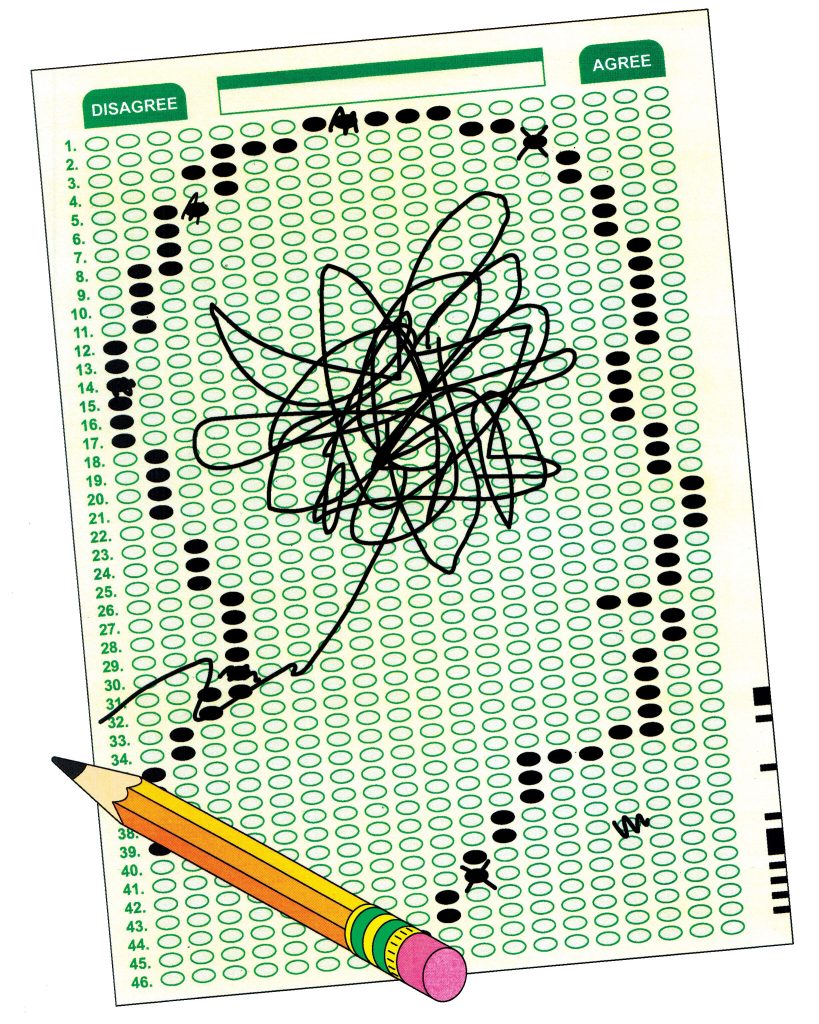This idea must die: Personality type tests are a good indicator of performance potential
Dr David Stillwell says that when it comes to predicting performance in the workplace, it is traits, not types, that count.
People love to know their personality type. It’s a bit like those quizzes in magazines: ‘Who am I going to marry?’ or ‘What is my Star Wars character?’. But the problem is… personality types don’t exist.
Personality traits, such as curiosity or assertiveness, do – and that can be tested. But personality types, where you put people into boxes such as introvert or extrovert, then group those boxes, and say that makes up a personality – that’s over-simplistic and inaccurate. It’s a shame that people like this idea so much, because it encourages thinking of others as one-dimensional beings who fit into boxes, and it misses the nuances of being human. And when personality-type tests are used to predict job performance, they can lead to errors.

There are two ways workplaces use personality tests. One is for personal development and to start conversations, which is fine. In fact, it can be good, because not everyone understands that other people can think differently from themselves, including managers, and that can be problematic. So it’s good to understand that people have different personalities and so are motivated by different things. But then there’s the other use, using personality type when the stakes are high, such as hiring or promotion or building teams, and that is much more problematic.
For example, the first thing a type-focused test might measure is introversion versus extroversion. So you answer the questions and if you turn out to be 51 per cent extrovert, then you go in the extrovert box. But you might answer the questions the next day feeling more subdued, and get 49 per cent. And then you go in the introvert box. This type of test only really works when you’re at the far ends of the scale, but most of us fall in the middle. It would be more useful to think about the traits where you differ from the average. Also, there are only a couple of traits that matter for any role. For example, an accountant needs to be conscientious, but whether they’re extrovert or introvert doesn’t matter.
It encourages thinking of others as one-dimensional beings who fit into boxes, and it misses the nuances of being human
The small print of these type-focused tests usually say something like ‘use these for personal development, not for predicting performance’. But now picture the manager who goes to the personal development workshop and sees one person who matches their own ‘type’. There is a very good chance that manager will make more effort with this person, subconsciously preparing them for promotion because they think they recognise someone like themselves.
The 16 types used in many popular type-based tests come from Jung’s theory of personality, which is based on Freud’s thinking. Jung and Freud were writing in the 1920s and their theories are not even taught to students any more, unless as part of history, because psychology has moved on. Their theories are not borne out in the data – it’s not possible to construct questions that actually measure these personality types, because as I’ve said… they don’t exist.
In contrast, models of personality based on traits, like the Big Five, are data-driven. They don’t have a theory to prove. They are measurable. And they can be evaluated for how predictive they are of performance. Big Five was created using the dictionary – researchers took all the words that describe people and clustered them into five traits, for example ‘sociable’, ‘outgoing’ and ‘talkative’ go together and become ‘extroversion’. Then people are scored on a scale for each trait, from 0-100 per cent, so it’s clear that scoring 49 per cent is very similar to 51 per cent. These tests have been proven to predict performance about as accurately as a job interview. Furthermore, because the questions have been constructed to only test personality traits, they minimise the unconscious biases, such as racism or sexism, that job interviewers may have.
These are the best tests we have now, but I’d be disappointed if in another 100 years we’re still using them. We may discover more nuanced personality traits, or better ways to measure them. Then there’s the potential for artificial intelligence. Machine learning can already accurately predict behaviour, such as ‘will someone like this book?’, but it can’t explain why. When machine learning can teach psychologists why its predictions are so accurate, then that could revolutionise personality testing!
Dr David Stillwell is Academic Director of the Psychometrics Centre and Professor of Computational Social Science.







